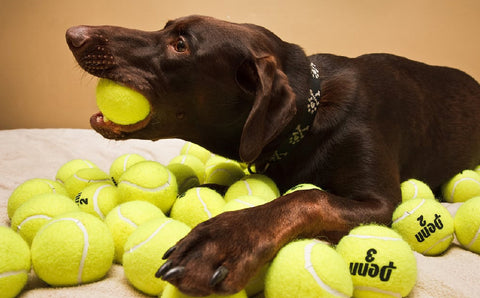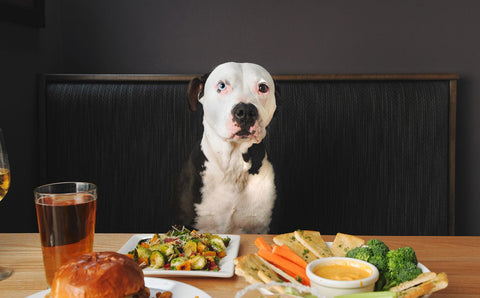The word discipline gets a bad rap, but at Bevill Dog Behavior we know that discipline and punishment are two very different things. Olympic athletes are disciplined. They follow their coach’s, nutritionist’s, and trainer’s programs to a tee. Their discipline is what makes them elite.
In the human world, discipline is the practice of training people to observe a code of behavior. We’re talking about thing such as:
- Dressing appropriately for the situation
- Obeying traffic laws
- Being on time
- Being quiet, calm, and respectful at weddings, funerals, or the library
Do any of these ideas scream punishment to you? Of course not. They’re simple codes of discipline that we use to respect each other and function as a society. You’re not being punished because you have to dress up for a special occasion. Stopping at a stop sign is safe and courteous. Pretty simple right? We naturally practice structure in order to live in a functional society. This keeps us from falling into a perpetual pit of chaos.
Dogs are the same way. In fact, discipline is a very kind, loving thing to offer to your dog. The whole structure of the human-dog relationship relies on a healthy dose of discipline, which again is NOT to be confused with punishment.
In their natural world, dogs (and all animals) live in a structured society. Their very survival depends on it. Discipline gives us structure, which is necessary and desired to keep life balanced. This is NOT punishment. In fact, a lack of structure and discipline can be its own form of punishment.
Without structure, dogs feel lost and confused about their role. Dogs don’t care about their social position as long as everything runs smoothly. It’s not punishment for a dog to be the follower, in fact it’s very comforting and rewarding for them if they have a calm, capable leader to follow. Dogs are not equipped to manage a human household. Trying to make them do so is creates many of the issues we see in our client’s dogs. Instead, we can give them the structure and discipline to thrive in our human world.
Punishment on the other hand is the infliction of a penalty as retribution for an offense. It is also typically delivered out of anger and frustration. In the human world when we commit a crime, we have a trial (oftentimes months after the crime was committed), and a jury decides how much punishment we need to repay the crime. It’s not uncommon to feel the anger in the courtroom from the jury, judge, prosecutors, and the prosecutor’s family.
So, punishing a dog typically happens AFTER they’ve frustrated or made their owner angry. And the main issue with the punishment is almost always the energy in which the punishment is being delivered.
Here’s an example: Putting your dog in his/her crate isn’t punishment. In fact, that should be the most peaceful, calm place in your home. However, if you’re crating your dog because you’re frustrated/angry about something your dog did, the (unstable) energy in which you put them in the crate is enough to turn the crate from a peaceful resting place to a traumatic, scary trap that creates anxiety.
Rather than punish your dog when they do an unwanted behavior, we want you to give them the structure and discipline, so they don’t need to practice those behaviors anymore. Offer your dog the complete package – mental & physical exercise, affection, proper nutrition, plenty of rest, and a healthy dose of structure and rules. Giving our dogs appropriate discipline is how we truly show them we care. This is another way we love and honor our dogs.











